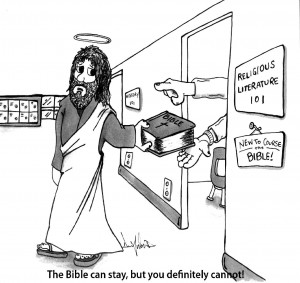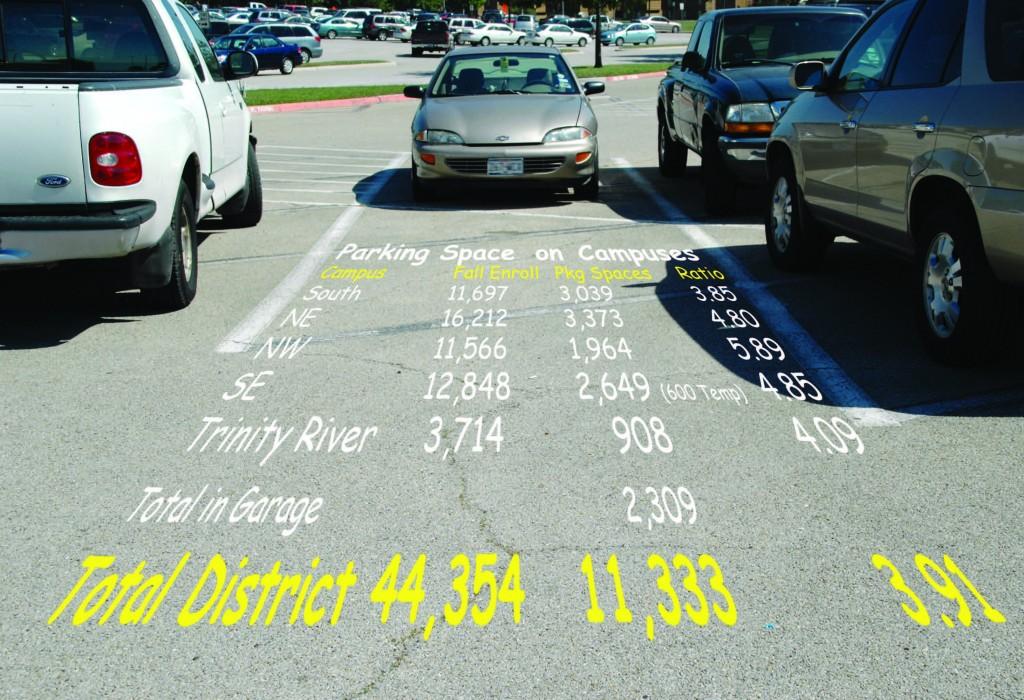
In 2007, the Texas Legislature passed a bill giving Texas school districts the option to teach the Bible as an elective.
Legislative leaders differed on whether the districts would be forced to offer the course. They revised the bill to make it less confusing.
Now if 15 students sign up for the class, the school has to offer the religious literature course. If 15 students don’t sign up, then the school does not have to teach the class.
Some people hear “Bible” and “school” in the same sentence and start to get nervous. What about separation of church and state?
Since they’re teaching the Bible from a literary perspective and not preaching, it does not violate the separation of church and state guidelines.
The Bible is the No. 1 selling book of all time and dramatically helped mold the American culture. Its teachings influenced the authors of the Constitution and the Declaration of Independence.
A teacher for this course must have a minimum of a High School Composite Certification in language arts, social studies or history with a minor in religion or biblical studies. In addition, the teacher must already have completed training.
Some teachers might like to take the opportunity to get on a soapbox and proselytize to students, but the legislation says teachers must be trained on how to avoid devotional content.
Also they need to understand how to present the Bible in an objective, academic manner that neither promotes nor disparages religions, the law says.
According to the National Council of Bible Curriculum in Public Schools, 38 states already teach the Bible in public schools.
“The program is concerned with education rather than introduction of students,” said Council President Elizabeth Ridenour. “The central approach of the class is simply to study the Bible as a foundation document of society, and that approach is altogether appropriate in a comprehensive program of secular education.”
Teaching the Bible in public schools can be a good thing as long as it is taught from an academic perspective, and not a religious perspective.
Students can go to church to get preached to, but learning the Bible from an academic point of view in a different environment can be educational and less judgmental than in church.
Students who don’t go to church will have the opportunity to learn more about the Bible among other religions.
The law says a school district is not prohibited from offering an elective course based on other books of different religions.
So students could have the opportunity to learn about other religions different from their own if they chose.
This option can be beneficial to students to learn about other religions that differ from their own — an opportunity to step out of the box and expand the ways they normally think.
Since the bill just took effect this fall semester, it might take students and teachers a little while to get used to it, but this can be a good thing if it’s done correctly.
People should read the fine print on any bill or contract before jumping to conclusions.
The answer to any question is most likely before their eyes.























